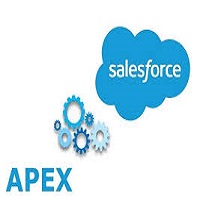Apex Programming
Introduction To Apex Programming:
Apex is a programming language that uses Java-like syntax and acts like database stored procedures. Apex enables developers to add business logic to system events, such as button clicks, updates of related records, and Visual force pages.
As a language, Apex is:
- Hosted-Apex is saved , compiled, and executed on the server
- Automatically upgradeable-Because compiled code is stored as metadata in the platform, Apex is automatically upgraded as part of Sales force releases.
- Object oriented- Apex supports classes, interfaces, and inheritance.
- Strongly typed- Apex validates references to object at compile time.
- Multitenant aware- Because Apex runs in a multitenant platform
- Integrated with the database- It is straightforward to access and manipulate records.
- Data focused- Apex provides transactional access to the database, allowing you to roll back operations.
- Easy to use- Apex is based on familiar Java idioms.
- Versioned- Custom Apex code can be saved against different versions of the API.
Apex Language Highlights
Like other object-oriented programming languages, these are some of the language constructs that Apex supports:
- Classes, interfaces, properties, and collections (including arrays).
- Object and array notation.
- Expressions, variables, and constants.
- Conditional statements (if-then-else) and control flow statements(for loops and while loops).
Unlike other object-oriented programming languages, Apex supports:
- Cloud development as Apex is stored, compiled, and executed in the cloud.
- Triggers, which are similar to triggers in database systems.
- Database statements that allow you to make direct database calls and query languages to query and search data.
- Transactions and rollbacks.
- The global access modifier, which is more permissive than the public modifier and allows access across namespaces and applications.
- Apex is a case-insensitive language.
Development Tools
You can write Apex and access debugging information directly in the browser by using the Sales force user interface.
You can also write Apex on a client by using the Force.com IDE plugin for Eclipse.
Hits: 256
